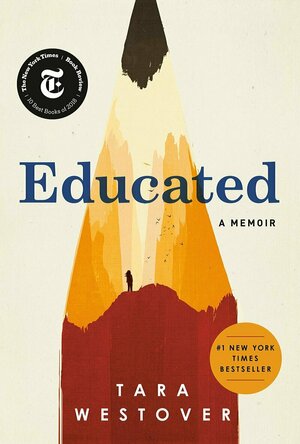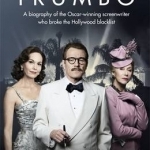
Math App - Times Table
Education and Reference
App
Memorizing Times Tables (multiplications tables) is important for children to advance in their math...
graveyardgremlin (7194 KP) rated Ashton's Bride in Books
Feb 15, 2019
Be warned! Massive ranting ahead!
<spoiler>
1. Like I said before, I hated her time-travel method. I don't quite get even how she time-traveled and the part I hate the absolute most is that she's in someone else's body. I just recently read a short story that had the same time-travel method, except that it was explained. I just find it disturbing and creepy, not to mention the amount of times it is said in the book how beautiful and perfect her looks are. Pretty nauseating. I just don't know how you could get used to looking in the mirror and not seeing yourself. That'd just be weird to me, even if I did happen to enter into a drop-dead gorgeous body. And Margaret acted like she was some freak of nature when she was in 1993. Boo hoo. Be happy with yourself for goodness sake! It seemed somewhat like the author was saying that you're not good enough if you're not beautiful. At least, that's the impression it gave to me.
2. It seemed to me that Ashton was infatuated with Mag. He couldn't have possibly actually loved her the way she was before Margaret entered her body, but he said he had. He really had to have fallen in love with Margaret, not Mag, and the blurriness there bothered me.
3. They're cousins. Okay so Margaret actually isn't, but the body she's in is. So what about children? Not a major point since cousins marrying isn't all that odd back then, but because of my other problems, it creeped me out more here.
4. Margaret's whole "revelation." She says now her parents and siblings never went to Cape Cod and are alive after all since they only went because of her and now she's back in time, and her parents only had two kids and not three. Umm no. If her parents never had her, then it would be impossible (yes, so is time-travel, but that's beside the point) for her to have gone back in time at all! She would have disappeared; she couldn't just be there now! Am I the only one who can see that?! Remember the photo featuring disappearing McFly's in Back to the Future? What comes around goes around. There's a few instances of that, but this is the one that bothers me most.
5. How did the papers show up? Seemed really unnecessary just to have Ashton believe her.
Had the back cover described how exactly Margaret time-traveled (like a mention of waking up in a strange body, perhaps?), maybe I wouldn't have had such a hard time with the concept and the other stuff wouldn't have bothered me as much. Who's to know?</spoiler> I promise, I'm really not crazy, even if my rants point to the contrary. I really think it could have been a great story, and I'm sure others will enjoy it, I just was left very disappointed.
Bookapotamus (289 KP) rated Educated in Books
May 29, 2018
This is a story of growing up in middle-of-nowhere Idaho with Mormon anti-government parents, who "home-schooled" Tara and her brothers and sisters, while preaching these crazy ideals on these poor kids who just didn't know any better. They believed everything their parents said (who wouldn't believe their own parents?!), and the abuse and neglect she had to essentially endure because of it, was heartbreaking. These kids grew up with no birth certificates, never stepping foot inside a classroom or a doctor's office, zero modern medicine (including for severe burns and brain injury!), living in filth and squalor, and the constant pressure to be of extreme faith and a tireless servant of a God, that required way to much of these poor children. And all under the watchful eyes of a father who takes no less than their utter devotion to that God, no matter what the consequences.
It pains me to see them choose sides throughout - you really do get the sense that these parents love Tara in all the way they know how, and they honestly feel that what they are doing is right and just, but it's just so blatantly wrong. I applaud Tara for trying so very hard - throughout every victory in her life without them, and coming out on the other side, not bitter at all, still feeling love for her family.
I was enthralled by this memoir. There wasn't any second of this book that dragged, or lulled - I literally could not put it down. The writing is so well thought out, every person rich with description and character, and you root for this strong-willed little girl to get out, and make something of her life and triumph over the family who may love her, but believe her to be evil because she just wants to be free. And we know, because of this amazing book, she finally is.
Love. Love. Love!
Thank you to NetGalley for the opportunity to review and to Tara Westover for sharing her story.
Hazel (1853 KP) rated Storm Watcher in Books
Dec 17, 2018
Is it possible for a book to be both too fast and too slow? This is what the story feels like in Maria V. Snyder’s contemporary children’s book <i>Storm Watcher</i>. It is the summer holidays and twelve year old Luke is working at the <i>Storm Watcher Kennel</i>, helping to take care of and train the many dogs living there. For his thirteenth birthday his father has promised him a bloodhound puppy, but what Luke really wants is a fluffy white Papillon – a dog that his father and brothers believe is useless and girly.
An important aspect of the story is Luke’s debilitating fear of storms. Although he has always been frightened of thunder and lightening, his mother’s recent death during a storm has greatly heightened his fears. Despite this phobia, Luke has enough knowledge and interest to act as an amateur meteorologist.
It takes a long time to get into the storyline. To begin with there is so much going on – dog breeding and training, starting to work with Willajean and her daughter Megan, feelings of guilt about mother’s death, fear of storms – making it difficult to determine which parts are essential to the plot, and more importantly, figure out the plot in the first place. Three months rapidly fly by, which in a short novel does not leave much room for an exciting climax, yet nothing major occurs.
Perhaps only the adult reader will detect the dullness <i>Storm Watcher</i> exudes, whereas when seen through a child’s eyes the story may be more exciting. Snyder has included a few interesting concepts such as over coming fear, dealing with grief and standing up for yourself. All these ideas are important for young people to understand and utilize in their own lives. The topic of meteorology, on the other hand, is not something children<i> need</i> to know, however it may interest them and provide the opportunity to learn something new. The author used to be a meteorologist before she turned to the world of literature, therefore has been able to provide a vast amount of knowledge about storms and weather, including a lengthy list of facts at the back of the book.
Maria V. Snyder’s young adult novels are well known throughout online communities, therefore <i>Storm Watcher</i>, although written for a younger target audience, had a standard to live up to. Unfortunately the result was disappointing, slow and a struggle to read. The book contains interesting ideas; however these could be expanded on to create a more engaging, full-length novel.

Blaze and the Monster Machines - Racing Game
Education and Games
App
Get ready to race along with Nick Jr.’s Blaze and the Monster Machines in this fun truck racing...

Blaze and the Monster Machines - Racing Game HD
Education and Games
App
Get ready to race along with Nick Jr.’s Blaze and the Monster Machines in this fun truck racing...

Dexteria Jr. - Fine Motor Skill Development
Education and Medical
App
(Ed. note: Be sure to also check out the new award-winning app Dexteria VMI.) "I am going to start...
Hazel (1853 KP) rated Teagan of Tomorrow (Legend of Rhyme, #3) in Books
Dec 17, 2018
They may have defeated the evil sorcerer, but the twins have found themselves in even more trouble. <i>Teagan of Tomorrow</i> is the third book in Jaime Lee Mann’s<i> Legend of Rhyme</i> fantasy series for children. Previously Asher and Ariana have helped to banish a powerful, wicked man, however in the process have been transported to the year 2015 – more than a couple of centuries into the future. Back in Coraira the rulers and fairies are desperate to locate the twins, but before they get a chance a curse befalls them, putting them into a deep sleep and removing all magic from the realm.
This third installment introduces a new character that is key to the plot. Teagan is a twelve-year-old girl living in a foster family in 2015. Readers learn that her parents died when she was young, however it is not revealed how or whether this is relevant to future books in the series. Although she never meets them, after Asher and Ariana find themselves nearby, Teagan starts experiencing odd things that could only be explained as magic… if magic existed.
The story is quite amusing to begin with as Asher and Ariana not only find themselves in a world they no longer understand, they have crashed straight into a reenactment of their own lives. Since magic ceased to exist, Coraira and the twins have become a legend that most people regard as a children’s fairytale, which they like to act out as a way of attracting tourists. The way the twins react to their surroundings produces a humorous comparison between the past and the twenty-first century.
As the story progresses it becomes clear that Teagan is a descendant of the twin’s family, and is their key to returning home. If only it could be as easy as it sounds. Before Asher and Ariana get to meet their youngest family member, Teagan accidently gets herself transported into Coraira.
Being only one hundred pages, <i>Teagan of Tomorrow</i> does not have room to resolve this disastrous situation. Readers will have to wait for the next book to be published to find out if the twins ever make it back home, and discover what happens to Teagan.
As with the previous two books, <i>Teagan of Tomorrow</i> is written in a language suitable for older children to understand. The author has kept the story short and to the point, making it easy to follow. The downside to this is it lacks description with dozens of pages containing only dialogue. This makes it harder to appreciate the setting and unique magical concept that Mann has invented.
The risk with a series of books is in going too far with the storyline. Sometimes there is a point when the story should end, yet the author perseveres on. I worried that this would be the case with this series. Except for the twins going missing, things could easily have finished at the end of the second book. The introduction of Teagan in<i> Teagan of Tomorrow</i> however gives a whole new concept to the original fantasy narrative. Instead of the same characters using the same magic, to defeat the same types of evil, surrounded by the same types of mythical creatures, Teagan provides a contemporary observation on the already familiar setting. The way the author leaves events at the end of the book will make the reader yearn for the next story, thus making it a success.
Nominated for an Oscar, BAFTA and Golden Globe,Trumbo is a recent film based on the original biography Dalton Trumbo written by Bruce Cook in 1977. Its adaptation to film provided the perfect opportunity to republish this extremely well researched book. With a forward written by John McNamara, the screenwriter of the motion picture, the story of Dalton Trumbo’s life is just as intriguing as it was almost forty years ago. But who is Trumbo?
If, like me, you have never heard of Trumbo or even the infamous “Hollywood Ten,” it may take a while for it to become clear as to why it was worth Cook’s time to produce a book about the man. Dalton Trumbo was a well-known screenwriter of films such as Papillon, Lonely Are The Brave and Roman Holiday as well as author of the novel Johnny Got His Gun. However these are not all he is famous for. During his life, Trumbo became a member of the Communist Party, which Hollywood branded as an Un-American Activity and thus blacklisted him, as well as other screenwriters, directors and actors. Ten of these men, Trumbo included, were imprisoned for their political beliefs – yet nothing prevented Trumbo from continuing his fairly successful career.
Interestingly, Cook begins the book with the final stages of Trumbo’s life. At time of writing Trumbo was still alive, although rather poorly. After contracting lung cancer, having a lung removed, and suffering a heart attack, Trumbo was a very sick man; nonetheless he was still enthusiastic about being interviewed and telling his personal story.
From his childhood, to his evening shifts at a bakery, Cook details Trumbo’s early life, emphasizing the hard upbringing he had before he found himself in the world of Hollywood. Although roughly 75% of the book focuses on Trumbo’s career, Cook highlights Trumbo as a family man, with both a wife and three children who he absolutely adores.
Cook constantly refers to the Hollywood Ten as a concept that the reader should already be familiar with. Granted, someone who picks up this book is more likely to do so having a prior interest in the central figure, and thus already know about his background; however those ignorant on the topic eventually gather a better understanding on the topic once reaching the relevant chapters. It also becomes clearer why Trumbo is worth reading/writing about – he may have been blacklisted, but he managed to break through all the barriers and reinstate his name and many others.
Reading this half a century after the event, it seems strange that Trumbo was imprisoned. He had not done anything intrinsically wrong, it was purely prejudice against his political beliefs that got him into the mess he found himself. But when you consider the events of the time: World War Two, the Cold War, the Korean War, and Vietnam; it is understandable why many feared those who claimed to be Communists.
Cook’s narrative does not flow as a story, and much of it is broken up with quotes from various people he interviewed. The timeline jumps about between past and present (1970s), which occasionally gets a bit confusing. A large part of the book is spent analyzing many of Trumbo’s works – both for screen and written formats – which, unless you have a particular interest, can be a little tedious.
It has got to be said that Bruce Cook was an exemplary writer with a great eye for detail. He did not jump to conclusions or only talk about things from his point of view. Instead he interviewed, what seems like, everyone who ever met Trumbo, and based his writing on fact backed up with numerous quotes and citations.
This edition of Trumbo contains a selection of photographs taken on the set of the movie. Disappointingly it does not contain any of Trumbo himself – you would think that some photos could have been tracked down!
Trumbo is not a book that will interest everyone. Most people today – particularly in England – will probably be unaware of who Dalton Trumbo was, and thus would only seek out this publication due to a fascination with film production. I have not seen the film, but after reading this and discovering how books go from novels, to screenplays to moving image, it would be interesting to find out which parts of Trumbo’s life made it onto the big screen.



